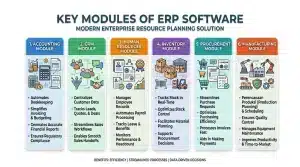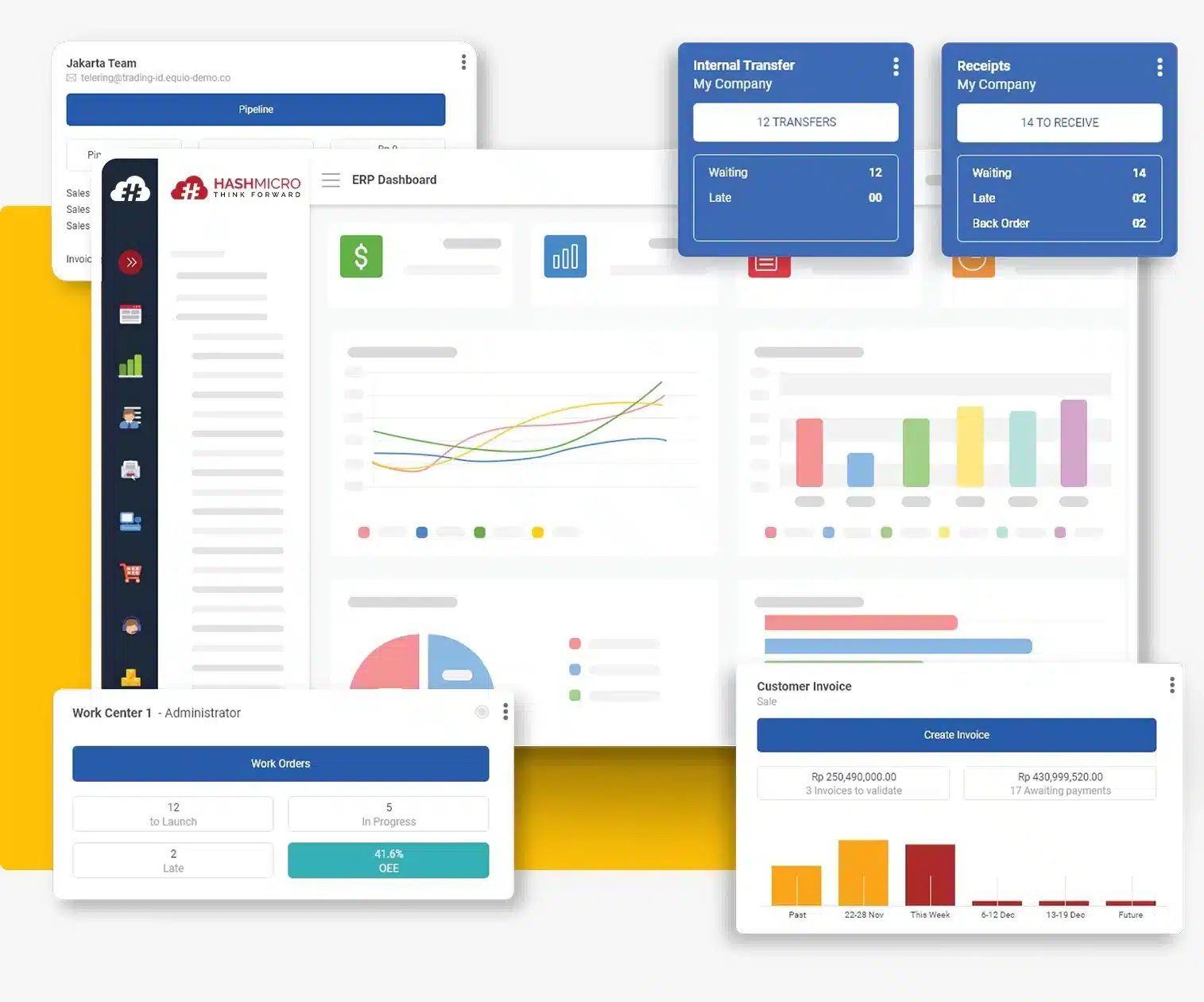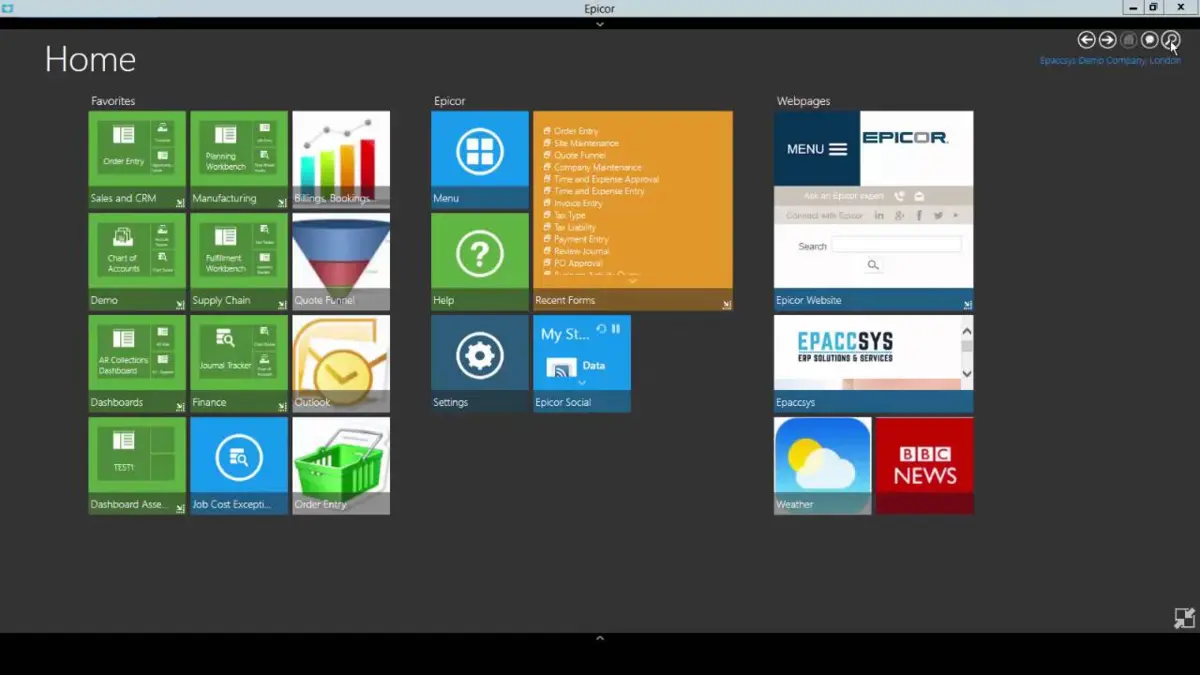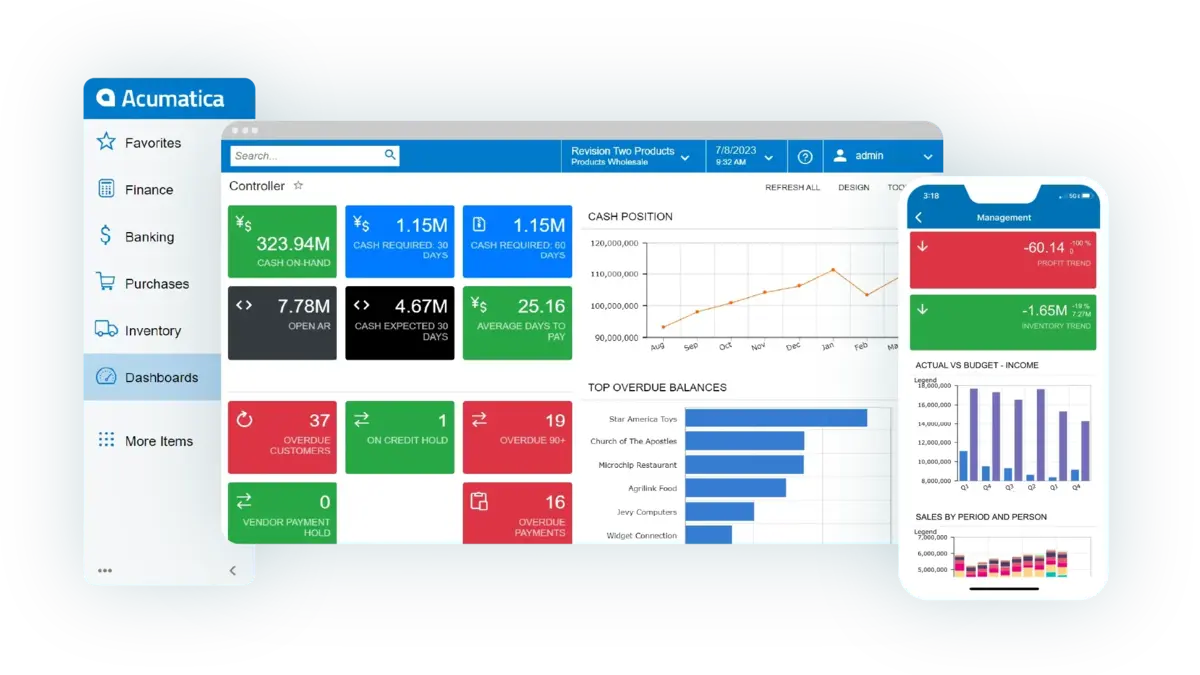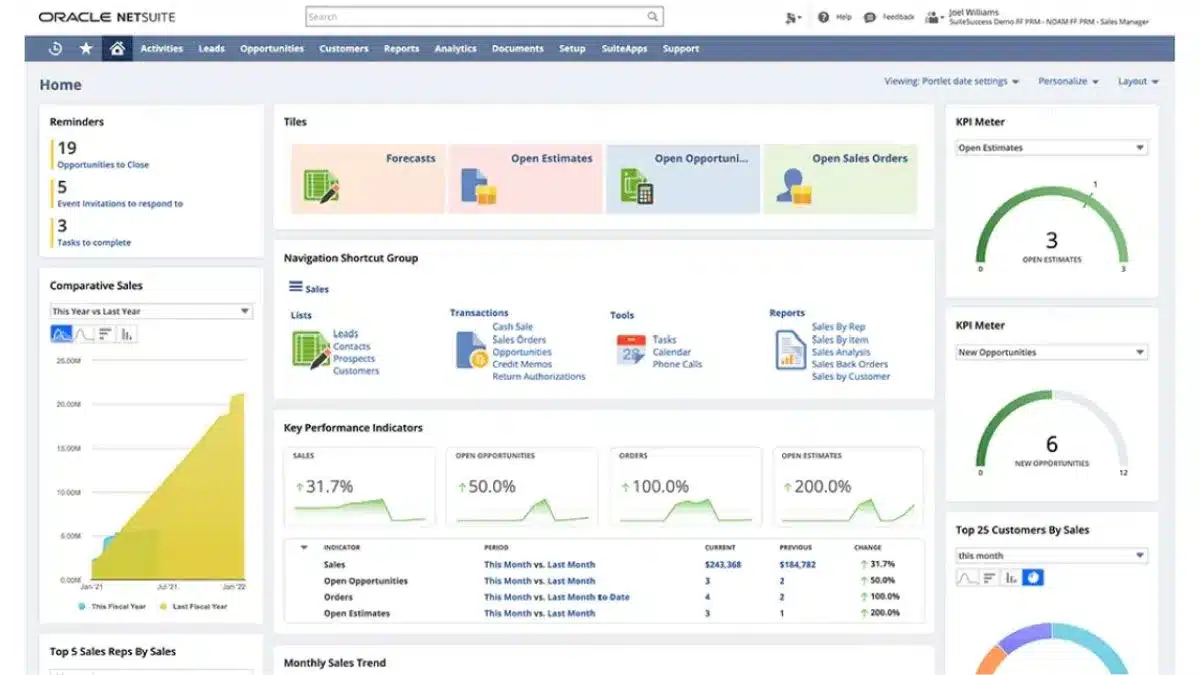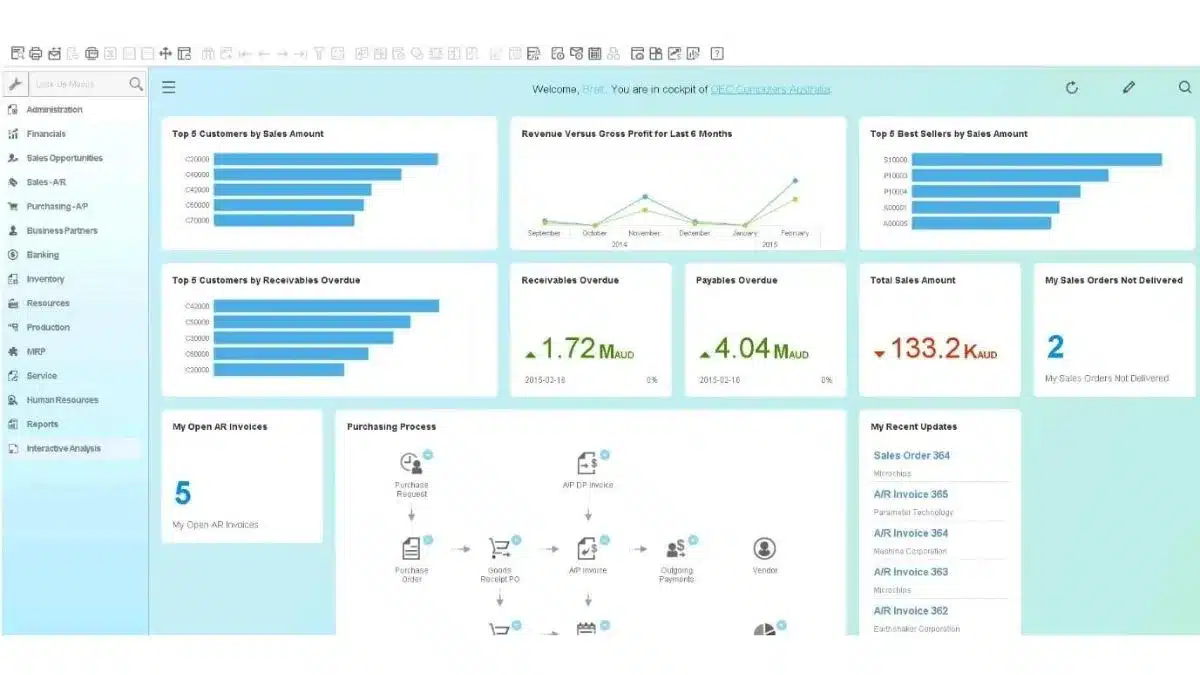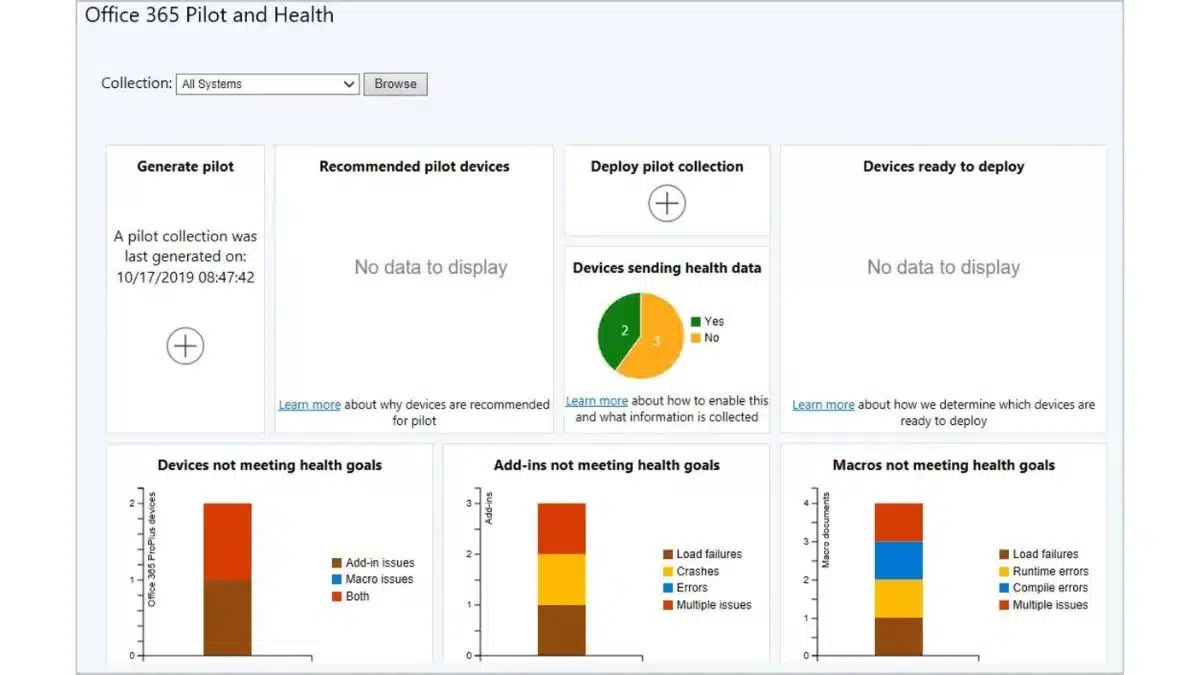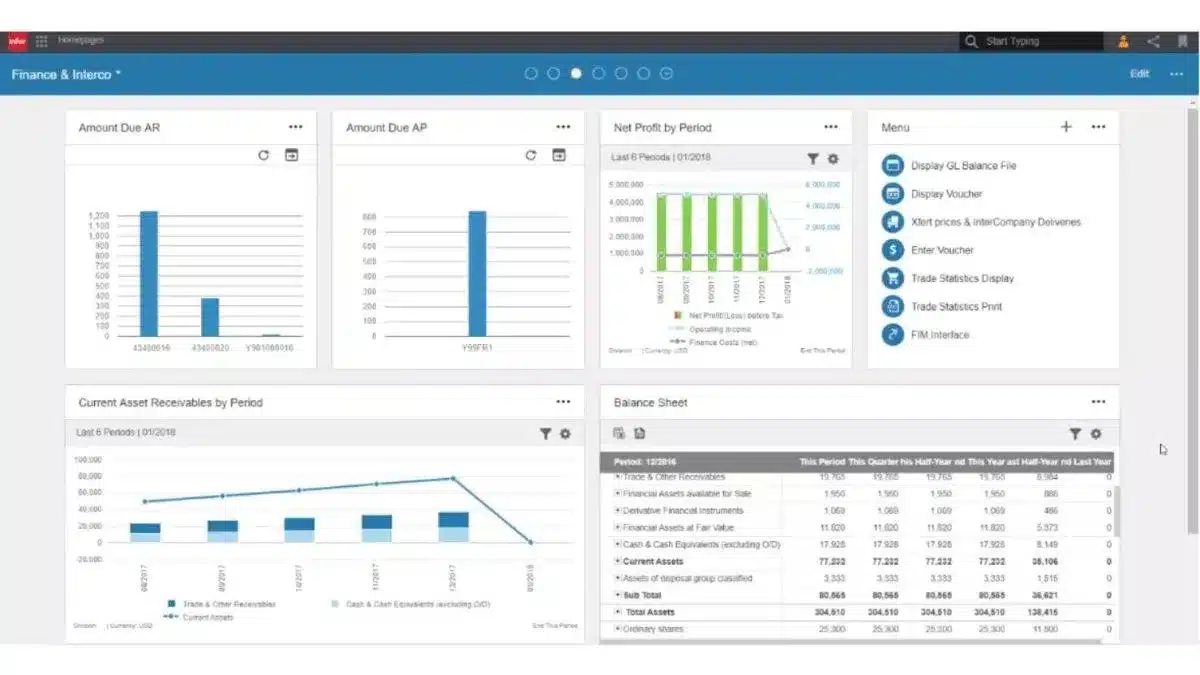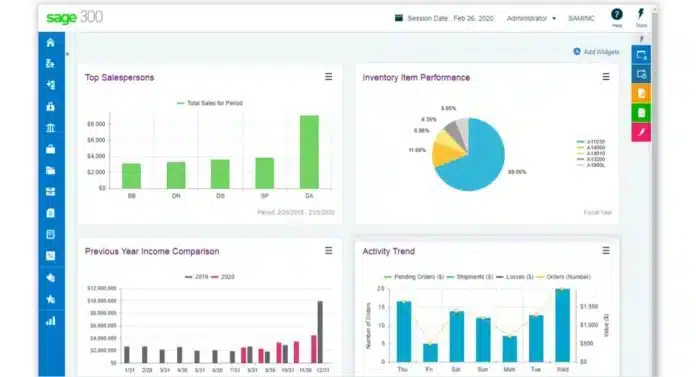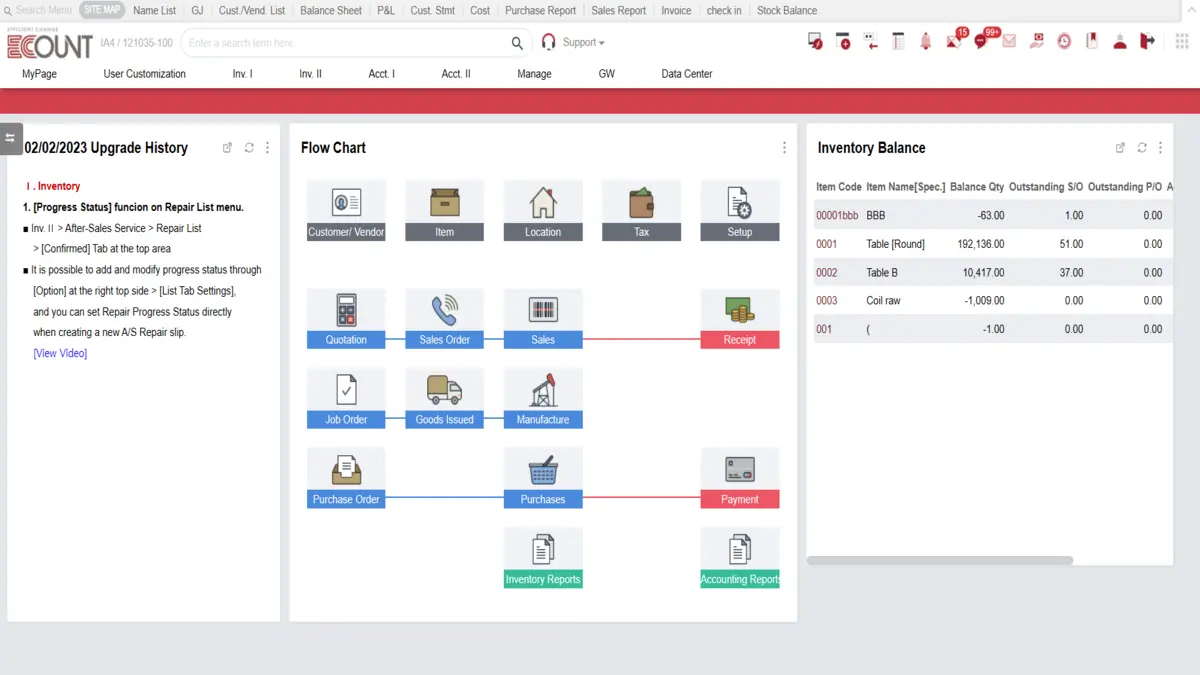A finance team in Penang spends three days every month reconciling inventory data between their warehouse system and accounting spreadsheets. A distributor in Johor Bahru loses a major contract because their quotation took too long, sales couldn’t see real-time stock levels. These aren’t rare cases. They’re what happens when business functions run on disconnected systems.
According to a McKinsey analysis, nearly 70 percent of ERP projects fail to reach their full potential, usually due to poor planning rather than the technology itself. Despite this risk, ERP adoption is rising quickly.
But choosing an ERP isn’t just about picking the most popular name. The right system depends on your industry, transaction volume, integration needs, and how much customization you’re willing to manage. This guide breaks down the leading ERP options in Malaysia. What each does well, where they fall short, and which types of businesses they actually fit.
Key Takeaways
|
Our Top Picks of ERP Software in Malaysia
Best because
The best end-to-end solution for all types of business needs
Best Because ERP strong for manufacturing and distribution workflows.
Best Because Flexible cloud ERP for mid-sized businesses with usage-based pricing.
Best Because Cloud ERP for unified finance and operations.
Best Because Enterprise ERP for complex operations and real-time insights.
Best Because ERP + CRM tightly integrated with Microsoft tools.
What is ERP Software and Why is It Important?
ERP software is a system that integrates core business functions such as finance, inventory, HR, procurement, and supply chain into one connected platform. It replaces separate tools and manual processes by providing real-time, shared data across teams.
Your business feel the impact in the messy parts of the week: when purchasing needs to match invoices to goods received, when inventory changes affect pricing and availability, and when month-end closing depends on clean transaction trails. For growing businesses in Malaysia, ERP matters because it reduces manual handoffs and prevents small data gaps from turning into delays, rework, or reporting headaches.
Hashy AI Fact

Need to know!
Hashy AI enables you to manage multiple companies with different operations by generating comprehensive business performance reports anytime, anywhere, in real time.
Request a free demo today!
What are the Types of ERP Software?
ERP deployment isn’t just “installing software.” It’s deciding how the system will run, who manages it, and how much control you keep over your data.
- On-Premise ERP: You host everything on your own servers. Full control, but you handle maintenance, security patches, and hardware upgrades. Common in regulated industries or companies with strict data sovereignty requirements.
- Cloud-Based ERP: The vendor hosts and maintains the system. Lower upfront cost, faster deployment, automatic updates. But you’re dependent on internet connectivity and vendor uptime.
- Hybrid ERP: Some modules on-premise (e.g., financials with sensitive data), others in the cloud (e.g., CRM, HR). More complex to manage but offers flexibility for businesses in transition.
Key Modules of ERP Software
As a complete business solution, ERP includes different modules to aid in managing your company. Here are several essential modules commonly found in ERP software Malaysia:
- Accounting: ERP software simplifies financial operations by automating accounting, budgeting, invoicing, and financial reporting, ensuring precision and adherence to regulations.
- Customer Relationship Management (CRM): Keeps customer conversations, quotes, and deal stages in one place so sales handoffs don’t depend on someone’s inbox or spreadsheets.
- Human Resources: Manages employee records, payroll, leave, benefits, and basic performance tracking so HR processes stay consistent as headcount grows.
- Inventory: ERP tools facilitate inventory management tasks such as tracking, stock control, and material planning and procurement.
- Procurement: ERP software streamline procurement processes, ensuring efficiency from purchase requests to invoice processing and payment.
- Manufacturing: ERP platforms optimize manufacturing operations, encompassing production planning, scheduling, quality control, and maintenance, thereby improving productivity and reducing time-to-market.
ERP Comparison Overview
After evaluating key ERP systems in Malaysia, here are the top solutions expected to lead in 2026.
| ERP System | Ideal Business size | Best for | Strength |
|---|---|---|---|
| HashMicro | Mid to Large | Retail, F&B, manufacturing, distribution, and professional services that require an integrated system. | Complete modules, unlimited user access, real-time integration, and customizable workflows. |
| SAP HANA | Mid to Large | Global operations, complex data volumes, real-time analytics. | Global operations, complex data volumes, real-time analytics. |
| Oracle NetSuite | Mid to Large | High-growth businesses, multi-entity/multi-currency operations. | High-growth businesses, multi-entity/multi-currency operations. |
| Microsoft Dynamics 365 | Mid to Large | Cloud-native, broad functionality (financials, CRM, supply chain). | Businesses using Microsoft stack, needing flexible ERP + CRM. |
| Epicor | Mid-Sized | Modular ecosystem, strong integration with Microsoft 365/Power Platform. | Manufacturing & distribution companies with shop-floor needs. |
| Infor | Mid to Large | Focused industry modules for manufacturing & distribution. | Pre-built industry processes, cloud-based, scalable. |
| Acumatica | Small to Mid | Pre-built industry processes, cloud-based, scalable. | Growing businesses needing flexible cloud ERP with mobile access. |
| SAGE | Mid to Large | Cloud-first, user-based pricing, strong growth in SME segment. | Businesses needing robust finance and operations for mid-market. |
| ECOUNT | Small to Mid | SME businesses looking for affordable ERP cloud solutions. | Cost-effective, modular, cloud-based solutions (requires vendor verification). |
| SYSPRO | Mid-Sized | Cost-effective, modular, cloud-based solutions (requires vendor verification). | Manufacturers/distributors requiring simpler ERP than Tier-1. |
10 Best ERP Software for Malaysian Businesses
Selecting the right enterprise software for your Malaysian business can be daunting, with numerous options to consider. Here’s a detailed list of the 10 best ERP systems in Malaysia. We’ve thoroughly analyzed user needs and outlined each solution’s strengths and drawbacks.
1. HashMicro ERP
HashMicro started in Singapore and has grown into a well-known ERP provider across Southeast Asia. In Indonesia, it’s widely used by large companies for its cloud-based ERP that helps manage core operations like sales, accounting, and inventory.
In Malaysia, HashMicro is positioned as a reliable ERP option that supports local needs and regulations, while also offering AI-powered features to speed up workflows. The system is flexible, easy to use, and supports both general and industry-specific modules (manufacturing, retail, F&B, and supermarkets).
Allied Market Research has also recognized HashMicro as a top ERP provider in Southeast Asia, serving 2,000+ clients, including brands like McDonald’s and Bank of China.
HashMicro offers various modules for each of your company’s needs, including but not limited to:
- CRM (Customer Relationship Management)
- Accounting
- Inventory (Inventory Management Software)
- HRM (Human Resource Management)
- Procurement
- Other modules
Price: Available upon request. To calculate your budget, download HashMicro’s pricing scheme.
What user says about it:

| Pros | Cons |
|
|
HashMicro stands out for its balance of advanced features and user-friendly design. Its flexibility and unlimited user policy make it a strong choice for fast-growing businesses that need a scalable, all-in-one solution.
2. Epicor
The Epicor ERP system is modular and tailored to specific industries, serving as comprehensive software for managing company-wide business processes. It handles various business processes effectively. Epicor software is accessible both on-premises and via SaaS cloud deployment.
Features
- Manufacturing execution system (MES)
- Supply chain management
- Financial management
- Human capital management (HCM)
- Business intelligence & analytics
- Customer relationship management (CRM)
Price: RM616–RM822 per user/month.
What user says about it:

| Pros | Cons |
|
|
Epicor shines in manufacturing and distribution with its modular approach, allowing businesses to deploy only what they need. Still, ongoing maintenance often requires expert involvement, which can increase operational costs
3. Acumatica
Acumatica is a cloud-based ERP software in Malaysia that provides functionalities like financial management, distribution, project accounting, and customer management. Its flexibility allows easy customization to suit individual business requirements.
Features
- Financials
- Distribution
- Manufacturing
- Retail-Commerce
- Construction
- CRM
Price: From approx. RM6,165 (pricing structure varies by package).
What user says about it:

| Pros | Cons |
|
|
Acumatica is known for its flexible deployment and user-friendly interface, making it a great fit for SMBs looking for cloud-first ERP. Yet, it lacks deep vertical features compared to some larger competitors.
4. Oracle NetSuite
NetSuite, a cloud-based ERP software by Oracle, helps businesses automate and manage various aspects with its rich modules. It provides real-time insights into financials, CRM, inventory, and sales. Serving industries like manufacturing, retail, software, and e-commerce, NetSuite is adaptable for businesses of any size with advanced reporting and analytics.
Features
- Financials
- Project Management
- Procurement
- Risk Management
- Supply Chain Management (SCM)
- Customer Relationship Management
Price: Approx. RM407–RM818 per user/month.
What user says about it:

| Pros | Cons |
|
|
Oracle NetSuite offers robust cloud-based ERP with impressive real-time reporting. While highly customizable, businesses should be prepared for subscription fluctuations and additional support costs.
5. SAP HANA
SAP S/4 HANA is one of the best ERP software Malaysia, harnessing in-memory databases for swift data processing. It offers various modules like financial management, procurement, manufacturing, and logistics. However, its implementation costs and extra fees may pose financial challenges for some businesses
Features
- Finance
- Customer Relationship Management
- Network and Spend Management
- Digital Supply Chain
- HR and People Engagement
- Experience Management
Price: RM12,330–RM24,660 one-time (on-premises list price range).
What users say about SAP HANA:

| Pros | Cons |
|
|
SAP HANA delivers enterprise-grade power and speed, ideal for large organizations with complex operations. However, the learning curve and cost make it best suited for companies with dedicated IT resources.
6. Microsoft Dynamics 365
Microsoft Dynamics 365 comprises a suite of intelligent applications for both enterprise resource planning (ERP) solutions and customer relationship management (CRM), seamlessly integrated with other Microsoft products. It provides a diverse array of features tailored to businesses’ needs.
Features
- Financial Management
- Sales
- Purchases
- Warehouse Management
- CRM
- Human Resources Management
- Manufacturing
Price: Starting from RM288 (Essentials) / RM411 (Premium) per user/month; Attach license ~RM82.
What user says about it:

| Pros | Cons |
|
|
Microsoft Dynamics 365 integrates seamlessly with the Microsoft ecosystem, making it a smart move for businesses already using those products. It’s a versatile solution, though some customizations may require technical expertise.
7. Infor
Infor ERP, a cloud-based ERP software Malaysia, provides industry-specific solutions for manufacturing, distribution, healthcare, and more sectors. Its tailored approach ensures businesses have the tools they need to thrive in their respective fields.
Features
- Finance management
- Procurement
- Manufacturing
- Inventory management
- Customer relationship management (CRM)
- Human resources
Price: Starting from RM822 per user/month.
What user says about it:

| Pros | Cons |
|
|
Infor’s industry-specific focus provides tailored tools for niche sectors, ensuring businesses get solutions that fit their workflows. However, its lengthy deployment timeline can be a challenge for businesses needing quicker implementation.
8. Sage
Sage is one of the prominent ERP Malaysia. Initially known for accounting software development, it has since diversified its product range. Sage’s software solutions primarily encompass accounting, payroll, human resource management, and payment functionalities.
Features
- Accounting tools
- Payroll management
- Human resource management
- Payment processing
Price: Approx. RM102,750–RM411,000 (implementation and scope dependent).
What user says about it:

| Pros | Cons |
|
|
Sage is a reliable choice for accounting-driven businesses seeking ERP capabilities. Its customizable dashboards are helpful, but customer support responsiveness remains a concern for many users.
9. ECOUNT
ECOUNT ERP system is designed to support the operational needs of Malaysian businesses. It offers comprehensive tools for managing inventory, production, logistics, sales, accounting, and payroll. ECOUNT’s inventory management feature allows users to track inventory movement across multiple locations.
Features
- Inventory
- Production
- Sales
- Purchasing
- Accounting
- Payroll
- Collaboration
Price: RM600 (3 months) / RM1,200 (6 months) / RM2,400 (1 year).
What user says about it:

| Pros | Cons |
|
|
ECOUNT offers an affordable, straightforward ERP with strong inventory tracking for multi-location businesses. However, limited integrations and customization may restrict its suitability for more complex operations.
10. SYSPRO
SYSPRO offers ERP Malaysia and integrated business software to manufacturers and distributors. Their software covers all business aspects, such as accounting, manufacturing, operations, and distribution, aiding in automating and integrating core processes
Features
-
-
- Supply chain management
- Sales management and CRM
- Business activity monitoring
- Warehouse management
- Business intelligence
- E-commerce
-
Price: Approx. RM14,385 per user (perpetual license); Core Finance Module ~RM41,100.
What user says about it:

| Pros | Cons |
|
|
SYSPRO excels in manufacturing and supply chain management, offering deep industry functionality. Still, its dated interface and reported security concerns mean businesses should evaluate it carefully before adoption.
Overall Comparison of ERP Software Systems and Vendors in Malaysia
To help you compare your options more effectively, we’ve compiled a comprehensive table comparing the top ERP software Malaysia, so you can make a data-driven decision based on your company’s specific needs.
| Provider | Connection Quality | Bank Coverage | Ease of Integration | Data Enrichment |
|---|---|---|---|---|
| HashMicro | ||||
| SAP HANA | ||||
| Oracle NetSuite | ||||
| Microsoft Dynamics 365 | ||||
| Epicor | ||||
| Infor | ||||
| Acumatica | ||||
| Sage | ||||
| Ecount | ||||
| SYSPRO |
Choosing the right ERP company in Malaysia ensures better support, localized compliance, and a smoother implementation journey.”
Real Example: What Changes After ERP Implementation
Most ERP promises sound the same on paper. The difference shows up in the everyday work: whether teams can trust inventory numbers, whether purchasing matches what production actually needs, and whether finance can close the month without chasing missing transaction trails.
Here’s a real example from a manufacturing setup where ERP was implemented to reduce operational friction across planning, inventory, and costing.
Marimas didn’t adopt ERP just to “go digital.” The decision came from real operational pressure: demand was getting harder to predict, product lines kept expanding, and manual processes made it difficult to keep production, inventory, and finance on the same page. When different teams work from different numbers, small mismatches quickly turn into delays, stock imbalances, and last-minute fixes.
After implementing HashMicro’s ERP system, Marimas focused on the areas that directly impact performance. Manufacturing and supply chain workflows were connected so demand signals, production planning, and supplier coordination could work together. Inventory control improved through barcode scanning and automated low-stock alerts, while the finance team gained better visibility into production costs and reporting.
The results showed up in daily operations. Planning and purchasing decisions became more consistent because everyone worked from the same real-time data, not manually reconciled spreadsheets. Inventory records became more reliable, cost tracking became more accurate, and managers spent less time fixing problems and more time focusing on growth.
What are the Benefits of ERP Software?
ERP software Malaysia do more than handle daily operations, they help businesses work smarter, cut costs, and boost efficiency. Here are the key ERP benefits:
- Maximize ROI: ERP streamlines workflows and removes inefficiencies, with 83% of companies seeing ROI within the first year.
- Stay Compliant: Automation keeps Malaysian businesses aligned with IRBM regulations, making audits easier and reducing errors.
- Reduce Operational Costs: By unifying processes, ERP lowers labor, inventory, and admin costs by up to 23%.
- Enhance Scalability and Visibility: ERP grows with your business and gives real-time insights across all departments.
- Improve Collaboration: A single system helps teams share the same data, communicate better, and work more efficiently.
Where ERP Implementations Go Wrong
Understanding why ERP projects fail is just as important as knowing what they can do. Here are the common mistakes that cause implementations to stall
- Skipping data cleanup
Moving messy data into a new system doesn’t fix the mess. It just makes it easier to search. Take time to clean up customer records, product codes, and supplier details before you go live. - Picking based on the demo, not your real workflow
Every ERP looks impressive in a sales presentation. But the real question is whether it handles your specific situations, like partial shipments, credit note approvals, or invoicing in multiple currencies. Ask the vendor to show your actual process, not their prepared script. - No one inside the company owns the project
When ERP projects depend only on IT or outside consultants, they tend to lose momentum. You need someone from operations who takes ownership and can push things forward when teams resist change. - Launching without running both systems in parallel
Before fully switching over, run the new ERP alongside your old system for at least one complete cycle, whether that’s a monthly close or quarterly reporting. This helps catch problems before they turn into emergencies.
ERP Options in Malaysia: What Each Actually Does
| Business type | What to prioritize | Quick check |
|---|---|---|
| SMBs focused on local compliance | Malaysian SST support, local bank connections, regional support team | Does it support SST-ready workflows and local reporting out of the box? |
| Manufacturers with complex product structures | Production planning, shop floor tracking, batch traceability; handle subcontracting and partial deliveries | Can it handle subcontracting and partial deliveries without manual workarounds? |
| Distributors with multiple warehouses | Real-time stock visibility across sites, smooth inter-branch transfers, logistics partner connectivity | Can my team see accurate stock across all locations without calling the warehouse? |
| Companies already using Microsoft tools | Microsoft 365 integration, usability with Excel/Outlook/Teams; watch licensing growth | How does licensing change when we add users and modules? |
| Fast-growing businesses | Scale to new modules/locations without reimplementation; clear expansion path | If we open a second warehouse next year, what needs to change in the system? |
How to Choose the Right ERP for Your Business?
Choosing the appropriate ERP software Malaysia requires careful examination of several important factors. Thus, it’s crucial to thoroughly research these factors below before selecting the right ERP software for your needs.
1. Assess the specific needs of your business
First and foremost, evaluating your business’s particular needs and demands is crucial. This involves considering your company’s size, the sector you are involved in, and the intricacy of your operations.
Grasping these aspects will assist you in streamlining your choices and selecting an ERP solution that suits your business requirements.
2. Consider the scalability of the ERP
As your business expands and changes, your ERP software should grow alongside and adjust to new needs. Seek a solution with modular features for easy addition or removal.
Also, confirm seamless integration with current software and third-party apps to facilitate smooth data flow and communication.
3. Assess the customer support team
When selecting ERP Malaysia, it’s crucial to assess the support and training provided by the vendor. Implementing ERP can be intricate. Hence, opt for a vendor offering thorough training and continuous assistance.
Also, the reputation and performance history of the ERP vendor should be evaluated. Choose one with a strong track record and presence in Malaysia to ensure adequate support and expertise for your success.
Conclusion
Choosing an ERP isn’t about finding the software with the longest feature list. It’s about finding the one that fits how your business actually runs, including your workflows, your team’s capacity, and where you’re headed in the next few years.
Before committing to any vendor, get clear answers on three things: total cost over three years (not just the license fee), who handles support when something breaks, and how the system manages the workflow that causes you the most pain today.
The right ERP won’t just digitize your current process. It should remove the friction that slows your team down. If you’re still comparing options and need help figuring out which setup makes sense for your operations, a free consultation with our team is a good place to start.

FAQ about ERP Software Malaysia
-
What is the best ERP system in Malaysia?
The best ERP system in Malaysia depends on your business needs, but HashMicro ERP stands out for its tailored modules and scalability. Other popular options include SAP Business One, Oracle NetSuite, and Microsoft Dynamics 365. HashMicro’s localized features make it particularly well-suited for Malaysian businesses.
-
How do I choose the right ERP system for my business?
To select the right ERP system, evaluate your company’s size, budget, industry requirements, and specific needs, such as inventory management or accounting. Consider the system’s scalability and ease of use and whether it offers integration with existing software.
-
Can I customize my ERP system?
Yes, most ERP systems allow customization to meet specific business requirements. This may include modifying workflows, adding unique modules, or integrating with third-party applications. Keep in mind that customization might require additional costs and technical expertise.
-
How long does it take to implement an ERP system?
The implementation timeline varies depending on your business size, your processes’ complexity, and the customization level required. On average, ERP implementation can take anywhere from a few months to over a year, with smaller businesses often experiencing shorter timelines.
-
What are the key features to look for in a top ERP solution?
Look for core module coverage (finance, procurement, inventory, sales), real-time reporting, strong integrations/APIs, scalability, role-based security, and a clean UX. Bonus points for workflow automation, mobile access, and solid local compliance support.
-
How do industry-specific ERP systems differ from general ERP solutions?
Industry-specific ERPs come with prebuilt workflows, templates, and compliance features tailored to a sector (e.g., batch/expiry for F&B, job costing for construction). General ERPs are more flexible but often require more customization to match niche operational needs.














